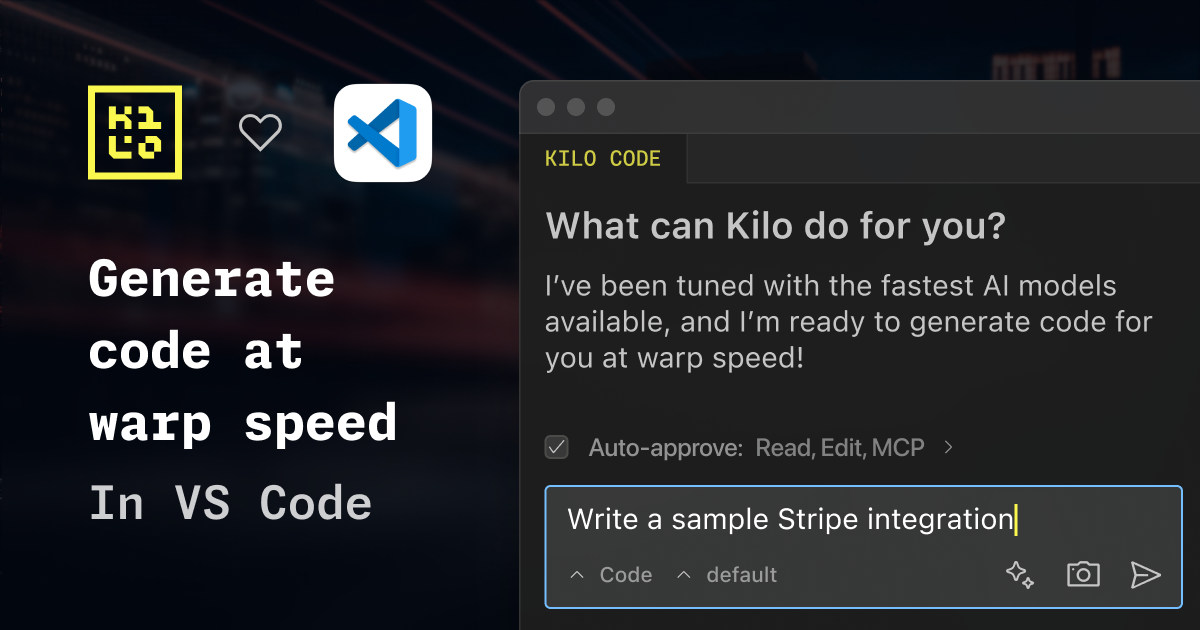Vibe Coding Tools
Vibe Coding is what all the cool kids are doing. Create full apps, tools, websites and mobile apps just chatting. NO CODING KNOWLEDGE required. Discover the best no code vibe-coding tools here.
Lovable
Build software products, using only a chat interface

Loveable.dev: The AI-Powered Full-Stack Development Platform That Ships Working Apps, Not Just Code
TLDR: Loveable.dev is an AI coding platform that generates full-stack applications from natural language prompts, delivering deployable React and Node.js projects in minutes. Unlike traditional code generators that spit out boilerplate requiring hours of debugging, Loveable produces production-ready applications with working backends, databases, and UI components—then lets you iterate through conversation. It's particularly strong for prototyping, MVPs, and internal tools, though complex enterprise applications may still require traditional development workflows.
What Loveable Actually Does (And Why It Matters)
The promise of "just describe what you want and AI builds it" has been around since ChatGPT launched. The reality? Most tools generate code snippets that require significant assembly, debugging, and infrastructure work before anything actually runs.
Loveable takes a different approach. It's a full-stack development environment where you describe an application idea in plain English, and the platform generates a complete, deployable web application—frontend, backend, database schema, authentication, and all. We're talking actual working software, not a collection of files you need to wire together.
The problem this solves is significant: the gap between idea and working prototype has traditionally required either technical expertise or weeks of development time. For founders validating concepts, product managers testing features, or developers building internal tools, that's friction that kills momentum. Loveable compresses that timeline from weeks to hours.
How It Actually Works
Loveable operates on a conversational interface where you describe what you want to build. The AI generates a complete application stack using modern technologies: React for the frontend, Node.js for the backend, and PostgreSQL for data persistence. The generated code uses established libraries like Supabase for authentication and database management, ensuring you're not getting some proprietary black box.
What distinguishes Loveable from competitors like Replit Agent or Bolt.new is the integrated deployment pipeline. Your application isn't just generated locally—it's immediately deployed to Loveable's hosting infrastructure with a live URL. No wrestling with Vercel configurations, no environment variable hunting, no "works on my machine" scenarios.
The iterative refinement process happens through natural language. "Add user roles and permissions" or "change the color scheme to match our brand" triggers targeted updates to specific parts of the codebase. The AI maintains context across the conversation, understanding the application's architecture as it evolves.
Standout Features That Separate Signal From Noise
Real-Time Collaboration and Version Control: Multiple team members can work on the same project simultaneously, with Loveable tracking changes and allowing rollbacks. This isn't just multi-player code editing—it's conversational development where different stakeholders can contribute ideas without touching the codebase directly.
Database Schema Visualization: Loveable automatically generates ERD diagrams showing table relationships as your application evolves. For anyone who's spent hours reverse-engineering a database to understand data flows, this alone saves considerable time.
Component Library Integration: The platform doesn't reinvent UI wheels. Generated applications use shadcn/ui components and Tailwind CSS, meaning the output aligns with current frontend standards rather than producing custom CSS nightmares.
Export and Self-Hosting: You're never locked in. Download the complete codebase as a standard Git repository and deploy it anywhere. The generated code is readable, well-structured, and documented—not minified AI slop.
Supabase Integration: Authentication, real-time subscriptions, and database management come pre-configured through Supabase. This handles the security and infrastructure concerns that typically consume early development stages.
Real-World Applications (Where This Actually Shines)
Loveable excels in specific contexts. MVP development is the obvious sweet spot—founders can validate product-market fit with functional software rather than clickable prototypes. Several Y Combinator startups have reportedly used Loveable for initial versions that secured user feedback and early revenue.
Internal tools development represents another strong use case. Companies need custom dashboards, admin panels, and workflow automation tools that don't justify weeks of engineering time. Loveable lets non-technical team members specify requirements and iterate on working solutions.
Rapid prototyping for client presentations works particularly well. Agencies can show actual functioning applications rather than static mockups, gathering more meaningful feedback and closing deals faster.
Where Loveable shows limitations: applications requiring complex business logic, heavy computational processing, or integration with legacy systems. It's optimized for modern web applications with standard patterns, not specialized enterprise software.
How Loveable Compares to Alternatives
vs. Replit Agent: Both generate full applications from prompts, but Replit focuses on broader language support and educational use cases. Loveable specializes in production-ready web applications with built-in deployment and iteration workflows. Replit gives you more control; Loveable gives you faster results.
vs. Bolt.new (StackBlitz): Bolt generates excellent frontend code and runs it in-browser, but lacks native backend and database generation. You're building UI-heavy applications, not complete systems. Loveable provides the full stack, making it more suitable for data-driven applications.
vs. Cursor or GitHub Copilot: These are IDE assistants that accelerate coding for developers who know what they're building. Loveable is an application generator for people who may not code at all. Different tools for different audiences, though experienced developers might use both—Loveable for scaffolding, traditional IDEs for refinement.
vs. Traditional no-code platforms (Bubble, Webflow): No-code platforms offer more customization through visual interfaces but have steeper learning curves and often produce less performant, harder-to-extend applications. Loveable generates standard code that any developer can modify, while no-code platforms create proprietary abstractions.
Addressing Common Concerns
"Is the code actually good?" The generated code follows modern React patterns with functional components and hooks. It's not hand-optimized by senior engineers, but it's readable, maintainable, and follows conventions. Think of it as junior-to-mid-level developer output that provides solid scaffolding.
"What about security?" Authentication and authorization use Supabase's battle-tested libraries. The platform generates Row Level Security policies for database access. That said, any production application requires security review—Loveable provides good defaults, not guarantees.
"Can experienced developers use this?" Absolutely. Many developers use Loveable to eliminate boilerplate setup and focus on unique business logic. It's particularly valuable for engineers who want to validate ideas quickly without spending days on project configuration. Check out what actual developers are building to see how professionals leverage the platform.
Pricing Structure
Loveable operates on a subscription model with tiered pricing. The free tier allows limited projects to test the platform. Paid plans (starting around $20/month as of this writing) provide increased project limits, priority processing, and additional deployment resources.
Enterprise pricing is available for teams requiring dedicated infrastructure, custom integrations, or service level agreements. Pricing varies based on team size and usage requirements.
For current pricing details and feature breakdowns, visit the Loveable.dev website directly—AI development tools update pricing frequently based on compute costs and feature availability.
Platform Specifications
- Frontend Framework: React 18+ with TypeScript support
- Backend: Node.js with Express
- Database: PostgreSQL via Supabase
- Authentication: Supabase Auth with OAuth providers
- Styling: Tailwind CSS with shadcn/ui components
- Deployment: Managed hosting with automatic SSL and CDN
- Version Control: Built-in Git integration with visual diff views
- Export Formats: Complete Git repository with all source code and dependencies
FAQ
Can I use my own backend or database? The platform generates Supabase-integrated applications by default, but you can export the code and modify it to use any backend. The generated code follows standard patterns that make such changes straightforward.
How does Loveable handle API integrations? You can specify external APIs in your prompts, and Loveable will generate the necessary integration code, including authentication headers and response handling. Common integrations like Stripe and SendGrid have been tested extensively.
What happens if I hit the limits of what Loveable can generate? Download your project and continue development locally. The codebase is yours to modify however you need. Many users generate the initial structure with Loveable, then refine complex features manually.
Is there a limit to application complexity? Practically, yes. Applications with dozens of interconnected features will become harder for the AI to manage coherently. Most successful projects on Loveable are focused applications solving specific problems rather than sprawling platforms.
Can I use Loveable for commercial projects? Yes, you retain full rights to the generated code. The subscription covers platform access and hosting, not licensing of output.
Final Assessment
Loveable represents a legitimate evolution in how software gets built, particularly for early-stage development and internal tooling. It's not replacing engineering teams for complex products, but it's eliminating weeks of setup and boilerplate work.
The platform works best when you understand what you're building but want to bypass the mechanical setup phase. Non-technical founders can validate ideas with actual software. Developers can focus on unique features rather than CRUD operations. Product teams can test concepts with real user interactions.
For anyone who's lost momentum on a project because "building the thing" overshadowed "validating the idea," Loveable deserves serious consideration.
Ready to see what you can build? Head to Loveable.dev and start with a free project—you'll have a working application in the time it would take to set up a development environment the traditional way.




